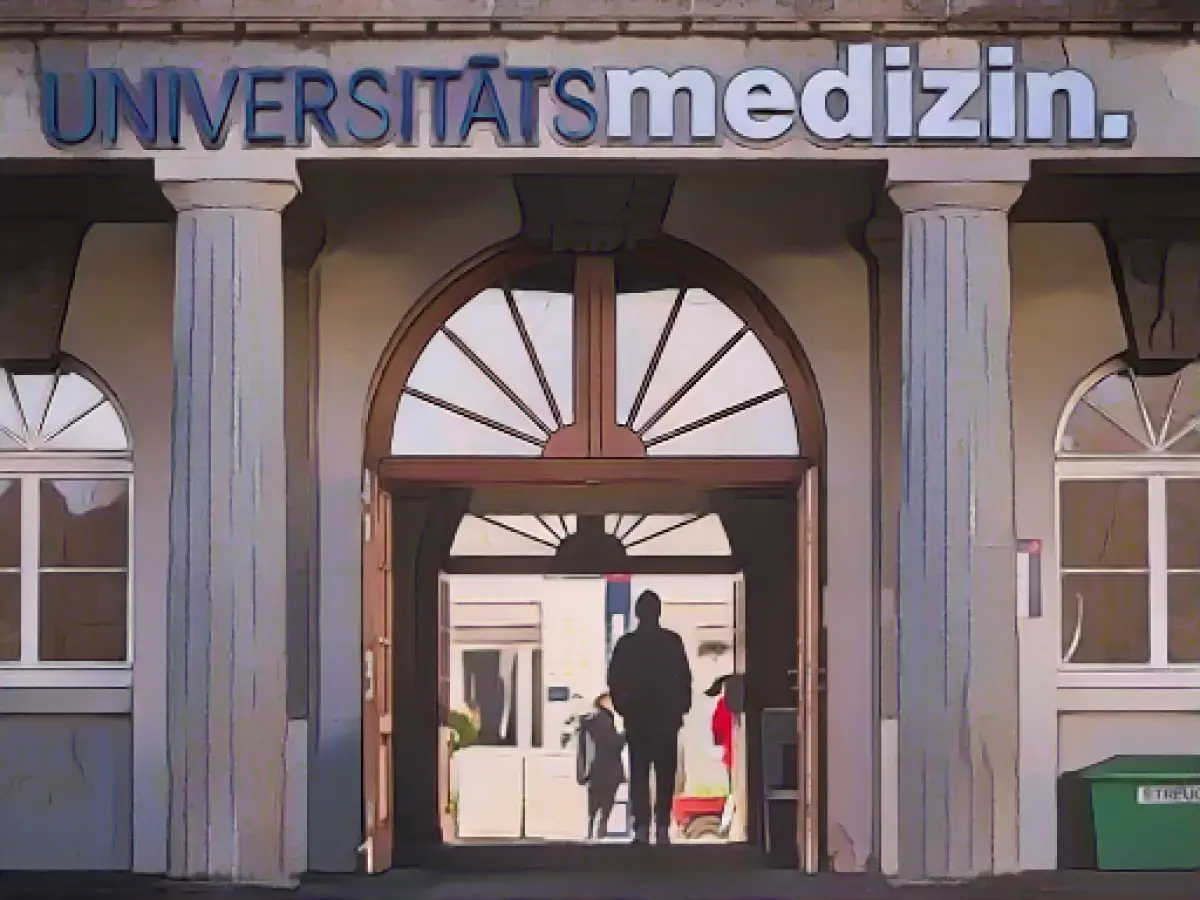Mainz University Medical Center wants to expand outpatient care
Mainz University Medical Center intends to significantly expand outpatient treatment in the coming years. The aim is to use resources more efficiently, meet the wishes of patients and free up inpatient capacity for other tasks, explained CEO Norbert Pfeiffer on Monday in Mainz.
The "outpatientization" project includes, for example, the expansion of outpatient operating theatre capacities and is to be taken into account in the planning of the new central building. This is part of the construction master plan, which envisages investments of around 2.2 billion euros in university medicine by 2038. The project will change more for the hospital than the introduction of the DRG system, i.e. the system with flat rates per case, Pfeiffer said. Outpatient clinic areas would have to be designed differently to those for inpatient treatment. The distances would have to be shorter, the patient would almost have to walk to the operating table, there would have to be rooms for relatives to stay, a reception desk as well as lockers and changing rooms for patients. All of this needs to be taken into account now.
The number of outpatient treatments at the University Medical Center - which includes all patients receiving some form of care who do not stay overnight - has already risen significantly in recent years. While there were around 530,000 in 2018, Unimedizin is expecting around 570,000 this year. Assuming an annual increase of five percent, Unimedizin should expect around 1.1 million outpatients in 2035. In comparison, the hospital currently has around 60,000 inpatient treatments per year. It is estimated that 20 percent of these could be treated on an outpatient basis in future, said Pfeiffer.
There are many more clinics and hospital beds in Germany than in neighboring European countries. However, it is becoming increasingly difficult to find enough specialist staff for all these hospitals. Much more outpatient treatment is already being provided in neighboring countries. Medical technology is now also creating more opportunities for outpatient treatment. Anesthetics allow patients to wake up earlier, operations are also more tolerable than before, there is less post-operative bleeding and fewer painkillers are needed. In addition, the catalog of outpatient services that can be billed by hospitals has recently been expanded and will continue to be expanded in the coming year.
Pfeiffer sees a lot of potential for previously inpatient treatments to be carried out on an outpatient basis in the future, for example in cardiac medicine, gynecology, urology and orthopaedics. This could also create scope for complex procedures that will only be performed at university hospitals in a few years' time when the planned hospital reform takes effect.
The hospital reform planned by the Federal Ministry of Health provides for hospitals to be divided into service groups in future. These are intended to ensure uniform quality standards for equipment, staff and treatment experience, for example, and thus ultimately determine which hospitals provide which services. It is foreseeable that, for example, complex cancer therapies, interdisciplinary treatments, certain cardiac therapies, the treatment of high-risk patients or even cases where the treatment and diagnostics are technically complex will remain with hospitals such as Unimedizin Mainz, said Pfeiffer, who is also a member of the medical board. Despite the trend towards outpatient treatment, the following will continue to apply to patients in the future: "No one will be pushed out the door."
The expansion of outpatient care at Mainz University Medical Center will also involve enhancing outpatient operating theatre capacities, utilizing resources more effectively in these areas and designing patient spaces differently from inpatient facilities. Due to the rising number of outpatient treatments, the need for advanced medical technology in outpatient care will become increasingly significant. [Health, Hospitals, Medicine]
As part of the hospital reform, it's anticipated that complex cancer therapies, interdisciplinary treatments, certain cardiac therapies, and high-risk patient cases will continue to be provided in hospitals like Unimedizin Mainz. This highlights the ongoing significance of specialized inpatient care and the importance of a balance between inpatient and outpatient services in maintaining high-quality medicine. [Health, Hospitals, Medicine]
Source: www.dpa.com








